Repeated attacks on Belgorod province could force Russia to withdraw troops from the front line in Ukraine to protect the border, stretching its defenses thin.
Authorities in Belgorod, a southwestern Russian province bordering Ukraine, announced on May 24 that several UAVs had infiltrated and dropped explosive devices on several buildings in the provincial capital. The UAV attack occurred a day after two pro-Ukrainian armed groups crossed the border into Belgorod on May 22 using armored vehicles, attacking a border checkpoint, killing one officer and injuring 13 others.
These are the largest and most daring cross-border raids since Russia began its campaign in Ukraine. They also come as the Ukrainian army prepares to launch a major counteroffensive, forcing Russia to deploy forces to reinforce its defenses along a frontline of more than 1,000 km.
“The Ukrainians are trying to stretch Russian forces in different directions to create gaps. Russia will then be forced to send reinforcements to fill those gaps, further stretching their forces,” said Neil Melvin, an analyst at the Royal United Services Institute (RUSI).
Russia is concentrating most of its forces in the Donbass region, which has seen fierce fighting for months, especially in the city of Donbass. Many elite Russian units are also deployed on the southern front, in anticipation of a possible Ukrainian attack on the Crimean peninsula.
Meanwhile, recent cross-border raids have been launched from the Kharkiv region in northern Ukraine, some 100 miles from the frontline. While these incursions have not caused major damage to Russia, they have caused significant disruption to civilian life, forcing Moscow to quickly deploy its forces in response.
"They will have to respond and send more troops there, deploy more units to reinforce the border area, even though it may not be the direction of attack from Ukraine," Melvin said.
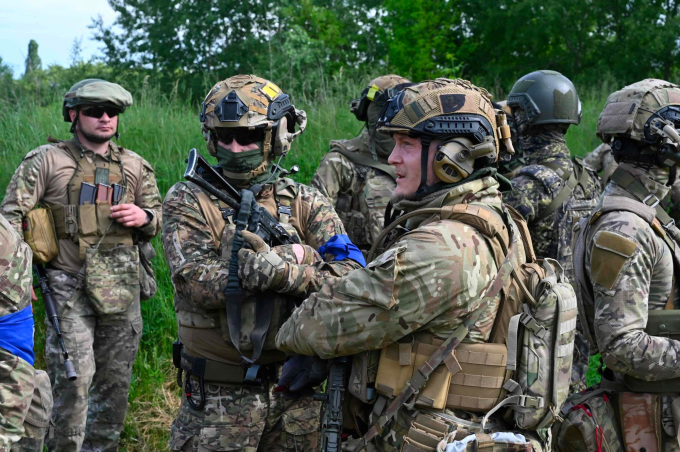
Members of the Ukrainian Volunteer Brigade in northern Ukraine, near the Russian border, May 24. Photo: AFP
It took the Russian military two days to deploy and repel the armed group that attacked the Belgorod region on May 22. They claimed to have killed more than 70 "terrorists" and accused Ukraine of being behind the attack.
Kiev denied the attack, saying it was carried out by Russian citizens, calling it an internal Russian matter. Two armed groups operating in Ukraine, the Russian Volunteer Corps (RVC) and the Free Russian Corps (FRL), claimed responsibility for the attack. These are two militias made up of Russian fighters who had joined the Ukrainian International Corps.
After withdrawing to the Ukrainian border, representatives of the two groups held a press conference in a forest in the north, declaring that they would continue their infiltration activities across the Russian border in the coming time and claiming that Russian security forces had responded "slowly and weakly" to the attack.
Marl Galeotti, head of London-based Mayak Intelligence Consulting, said the raids by the two groups were much smaller in scale than regular Russian-Ukrainian frontline operations, but they still served as a “field shaping” operation for Ukraine ahead of a counteroffensive.
"This is an attempt to kill two birds with one stone. It makes Moscow feel insecure, worried about domestic security risks, and at the same time forces the Russian army to disperse its forces, which have suffered many losses after more than 15 months of fighting," he said.
Sergey Radchenko, an international relations expert at Johns Hopkins University, said the border raids also showed that Russia's security had deteriorated after more than a year of fighting in Ukraine.
“This is why Ukrainian intelligence is interested in cross-border attacks by militia groups, which have no strategic significance. The message they send with such raids is to expose holes in Russia’s security network,” he said. Such holes would require Russia to spend a lot of resources to patch, affecting its defense capabilities on the Ukrainian battlefield.
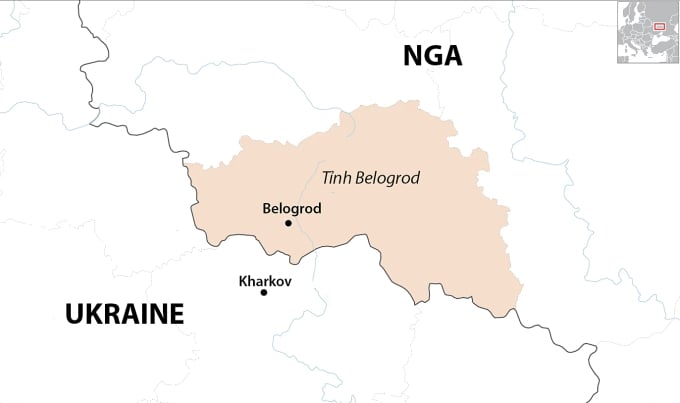
Belogrod Oblast and its capital of the same name. Graphics: FT
Igor Girkin, a former officer of the Russian Federal Security Service (FSB) who joined the militia in eastern Ukraine, wrote on Telegram on May 24 that the raids would lead to "the formation of a new front along the border," forcing the Russian military to redistribute its forces to consolidate its position.
This would give the Ukrainian military a crucial advantage as it plans a major counteroffensive, according to Girkin.
“The raids show that Russia’s borders are extremely vulnerable. Ukrainian forces are not only conducting long-range attacks on infrastructure in Crimea or Lugansk, but are also coordinating with militias to conduct sabotage,” said Samuel Ramani, an expert on Russian military activity at the University of Oxford.
However, observers also believe that the attack may partly benefit Russian leaders in the information war, especially when pro-Ukrainian armed groups used US armor to attack targets in Belgorod.
“The Russian military has praised its efforts to successfully thwart a campaign of sabotage and terrorism supported by Ukraine and the West. That is to stir up fears among the Russian public about the threat from the West, helping to consolidate support and solidarity for the campaign in Ukraine,” said Ramani.
Thanh Tam (According to Reuters, NBC News )
Source link


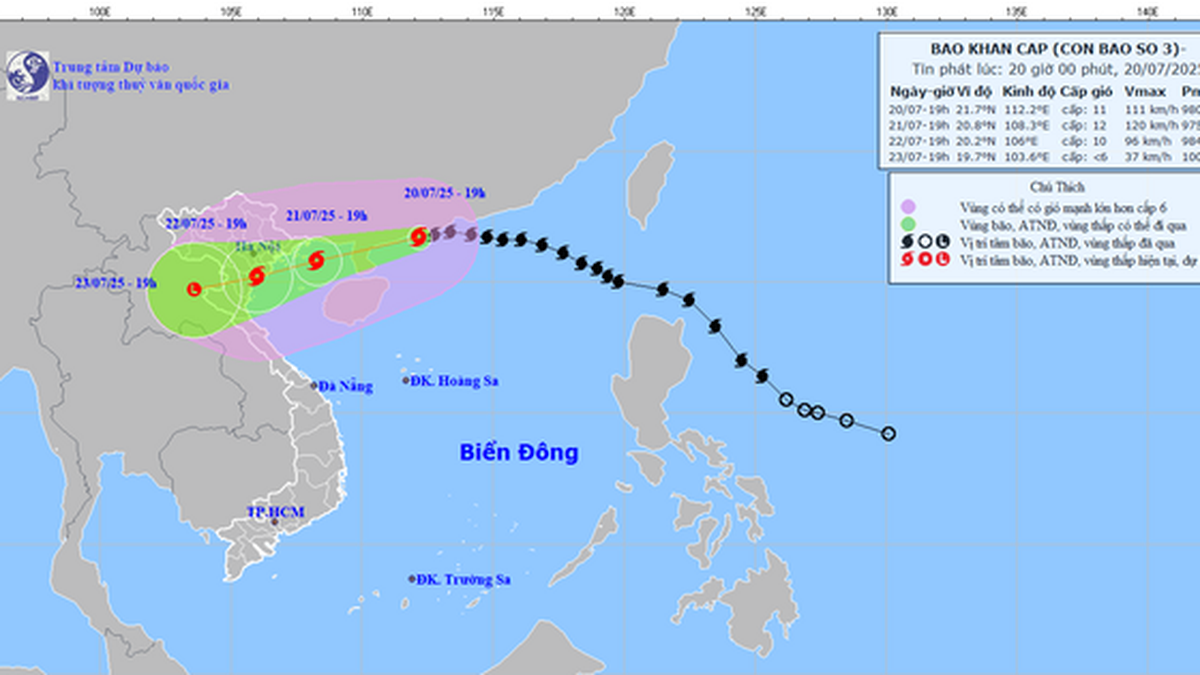

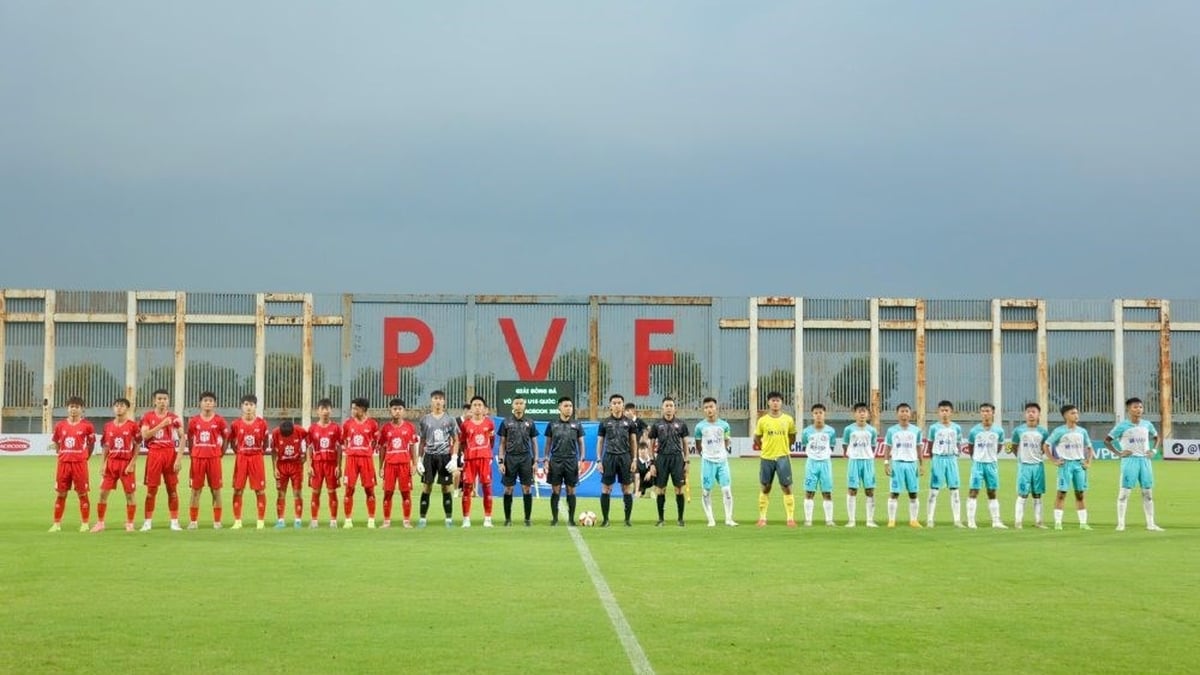




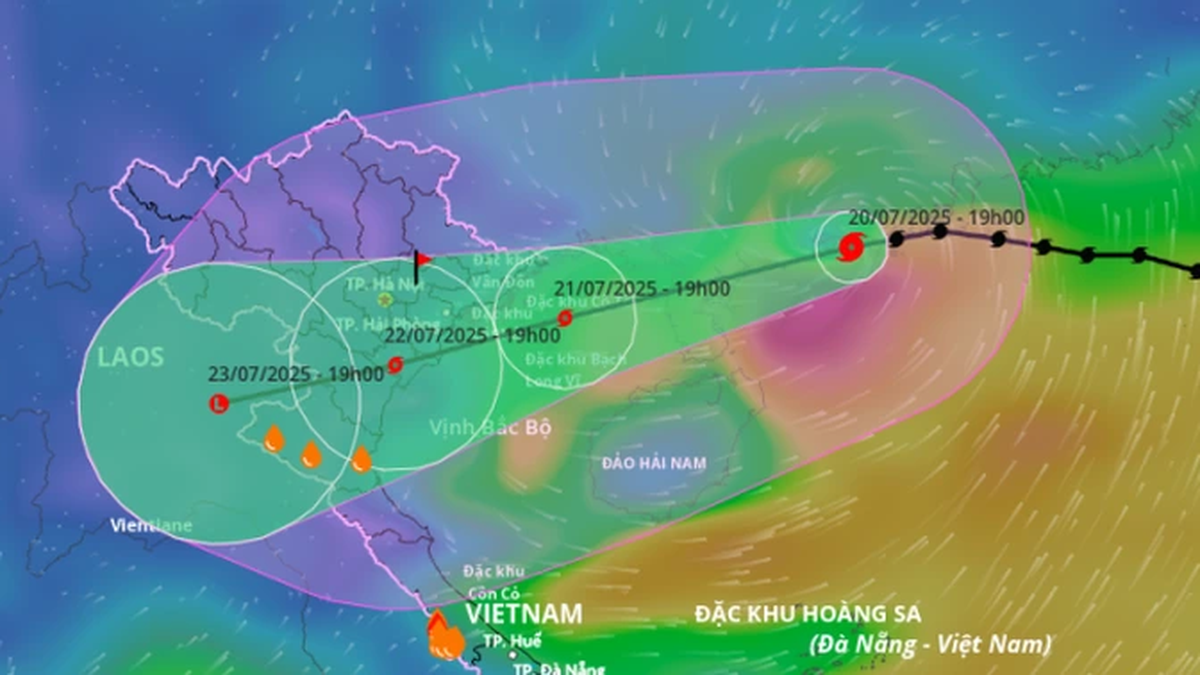
















![[Photo] National Assembly Chairman Tran Thanh Man visits Vietnamese Heroic Mother Ta Thi Tran](https://vphoto.vietnam.vn/thumb/1200x675/vietnam/resource/IMAGE/2025/7/20/765c0bd057dd44ad83ab89fe0255b783)







































































Comment (0)